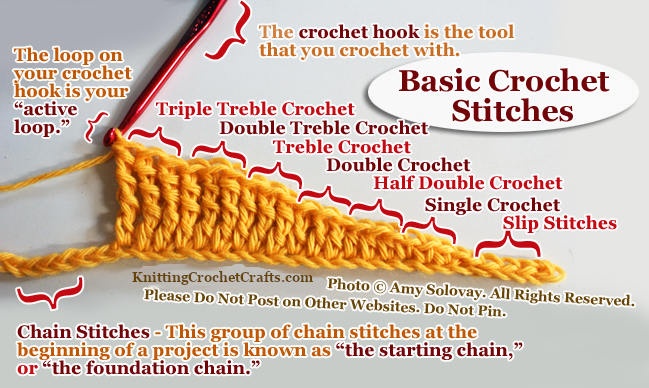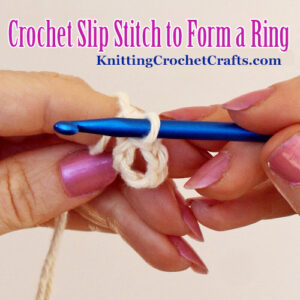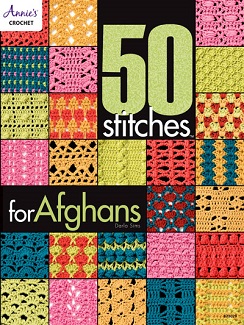Learn How to Crochet a Slip Stitch With These Free Instructions for Beginners

What Is a Slip Stitch?
The crochet slip stitch is one of the basic crochet stitches that every crochet enthusiast ranging from beginner to expert needs to know. It is a short stitch which adds a tiny, almost negligible amount of height to the row or round in which it is worked.
A slip stitch is similar to a chain stitch. The main difference: before you crochet a slip stitch, you’ll insert your hook into the fabric. After that, the motion is pretty much the same, except that you’ll be pulling the yarn through the fabric as well as through your active loop. The steps are as follows:
- Insert your crochet hook into the spot where you want to work your slip stitch. If you’re starting a brand new fabric, you could work your starting chain and then crochet into the 2nd chain from your hook.
- Grab your yarn or thread with the crochet hook, and pull it through both the work and your active loop.
- One slip stitch is complete.
10 Ways to Use Slip Stitch in Your Crochet Projects
Slip stitch is a multi-purpose stitch. It’s quite the workhorse! There are bunches of different ways to use this versatile stitch in your crochet projects. Let’s take a look at 10 of them:

When you want to crochet in rounds, you’ll first have to create a ring. To do so, you’ll usually crochet a starting chain and then join it with a slip stitch to form a ring. This method gives you a good start for crocheting circles, flowers, granny squares, doilies, hats and bunches of other projects that are crocheted in rounds.
2. Joining Rounds
Slip stitches are often used for joining things. If you’re instructed by a pattern to “slip stitch to join the end of the round to the beginning,” what you want to do is this:
- Work to the end of the round, following your pattern instructions.
- Find an appropriate spot at the beginning of the round to do your join. If you are working a round of single crochet stitch, you will probably want to work your slip stitch into the first single crochet stitch you made in the round. If you are working a round of double crochet stitch, you will probably want to work your slip stitch into the third chain stitch in the round. If your pattern says otherwise, do what your pattern suggests and disregard this.
- Insert your hook into the appropriate spot, grab your yarn and pull it all the way through the piece plus your active loop. This will create the join so that you don’t have a gap between the first stitch and the last stitch in the round.
3. Joining Granny Squares, Garment Pieces and More
You can approach the task of joining granny squares in a variety of ways. Slip stitch is one of the easiest and fastest possible joins. It’s a no-frills approach that’s really easy to master. Basically, you just hold the two pieces with the right sides together, and you work slip stitches through both pieces to join them.
4. Getting From One Spot to Another in a Granny Square or Other Crochet Project
Sometimes when you’re working a granny square or other project, you end your round in one spot but you want to start your next round in a different spot — perhaps a corner space or other chain space. When that happens, you can work a slip stitch, or several slip stitches, to get to the spot you want to work from.
5. “Anchoring” Groups of Chains to Crochet a Lace Trellis Design
Let’s say you want to crochet a lacy trellis fabric. One possible approach: crochet your starting chain. For your first row, you could build groupings of chain stitches and anchor them to the starting chain with slip stitches. For the second row, you might continue crocheting groupings of chain stitches and then anchoring those to the first row using more slip stitches.
6. Contrasting Design Elements
Slip stitches are an important component of the visual design in many different crochet stitch patterns. For example, when crocheting shell stitches, slip stitches are the short design elements that balance out the taller stitches. The slip stitches help to create the visual contrast that makes the shell stitches interesting to look at.
7. Edging
You can work slip stitch all around the edges of just about any piece of crochet. If you crocheted a square or other shape with messy edges, a slip stitch edging is perfect for visually cleaning those up to create the illusion of clean, tidy edges.
Let’s say you worked squares, rectangles or strips of single crochet, double crochet or just about any other crochet stitch. If you join your squares or pieces using whip stitch, the joined sides can sometimes look messy and weird. Pieces like these look much neater and cleaner if you crochet slip stitch all the way around each piece first. Then you can use the slip stitches as guidelines for where to place your whip stitches when you join the pieces.
Want to monogram a crocheted blanket? Add an additional color to a motif or flower? Outline a shape on the surface of your crocheted fabric? You can use surface crochet slip stitches to accomplish any of these goals.
9. Creating Entire Fabrics — Also Known as Pjoning and Bosnian Crochet
You can use slip stitch to create sophisticated fabrics unlike any others. While slip stitch fabrics are pleasantly textured, they don’t have the same “loopy”, bumpy look about them that fabrics made from taller stitches like double crochet have.
You can try this technique by just picking up a hook and yarn and experimenting with working slip stitches into a foundation chain. It helps if you use a hook that’s much bigger than the hook you’d usually use with your chosen yarn.
10. Joining a New Yarn With Slip Stitch
There are many different ways to join new yarn when you’re working a multicolored crochet project. One possibility is joining your new yarn with a slip stitch.
Now you’re updated about how to crochet a slip stitch, and you’ve also learned about 10 different ways to use slip stitches in your crochet projects. Want to practice your slip stitch? If so, check out the following patterns:
Free Patterns for Practicing Your Crochet Slip Stitch
- Crochet and cross stitch Christmas tree square — You can use slip stitch in three different ways when you work these squares. You’ll use it as an edging around each square; you’ll also use surface crochet slip stitches to outline each Christmas tree motif. Then at the end of the project, you can use slip stitch to join all the squares together to create a pillow, blanket or other project.
Learn More Crochet Stitches
Want to learn how to do some other crochet stitches? Check out these crochet stitch tutorials, instructions and stitch dictionaries:

- Single Crochet
- Half Double Crochet
- Double Crochet
- Treble Crochet
- Double Treble Crochet
- Triple Treble Crochet
- The Best Crochet Stitch Dictionaries
- The Best Crochet Books for Beginners
This page was last updated on 1-21-2020.